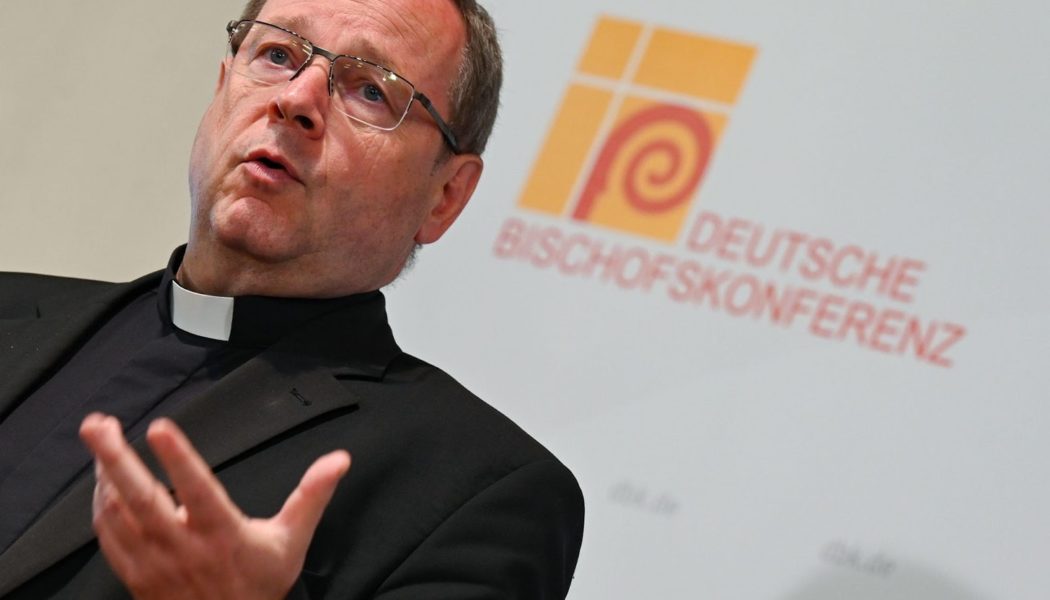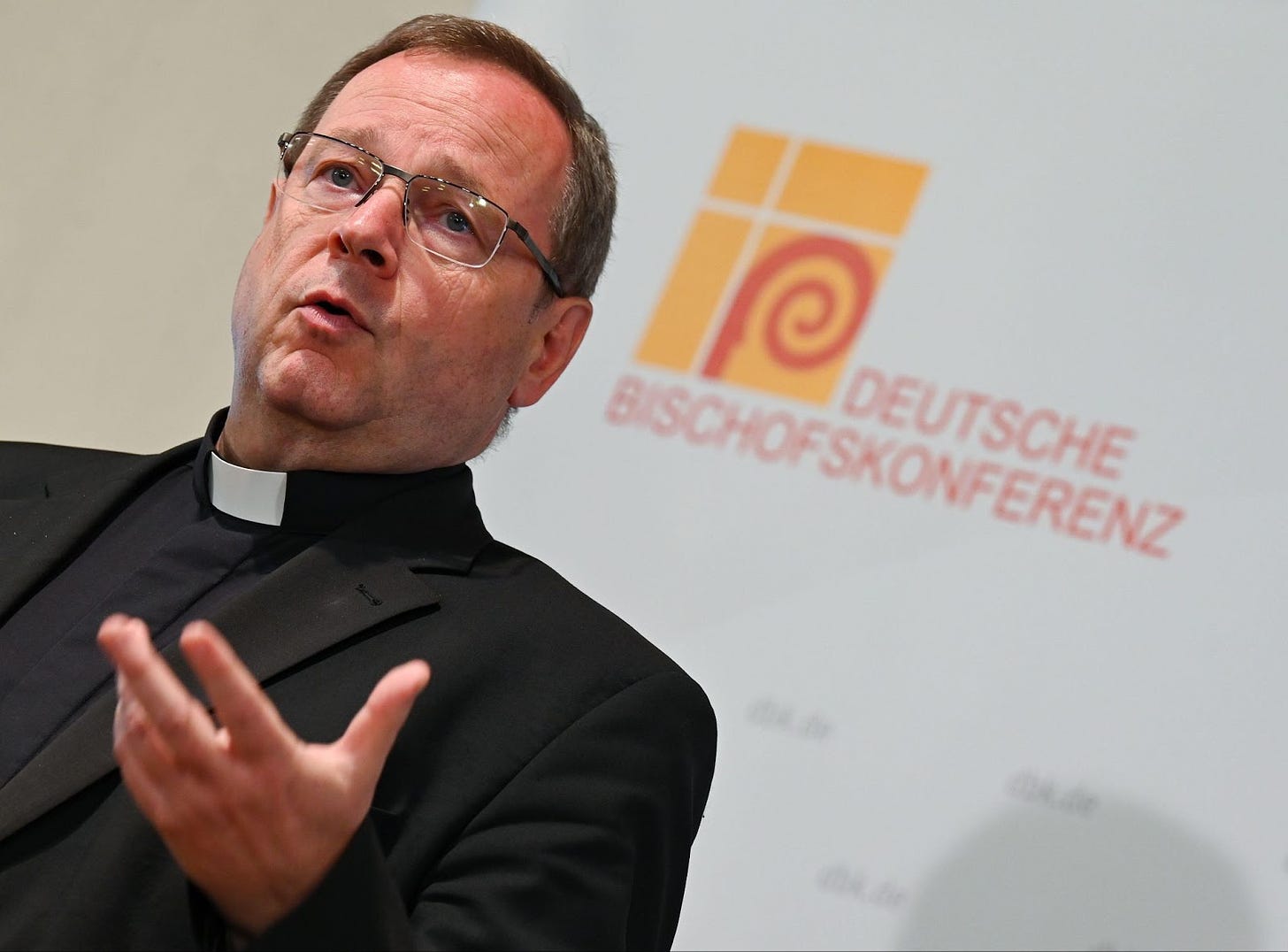On Tuesday morning, Pope Francis promulgated a revised Book VI of the Code of Canon Law, which contains the penal law of the Latin Church. Included within its provisions is a new, far more explicitly outlined crime on the attempted ordination of women, in what could prove to be a pointed action directed at the Church in Germany.
The revised canon 1379 provides that “both a person who attempts to confer a sacred order on a woman, and the woman who attempts to receive the sacred order, incur a latae sententiae excommunication reserved to the Apostolic See,” and that the one who attempts to ordain a woman “may be punished by dismissal from the clerical state.”
While this is not, strictly speaking, an innovation in the law, it makes explicit what was formerly only implied by a much broader canon, and closes the scope for a potential loophole in the language to be argued by someone attempting to confer ordination at any level on a woman.
The previous version of the canon provided the penalty of excommunication for “a person who simulates the administration of a sacrament.” This included a priest or bishop who knowingly attempts to perform a sacrament with invalid matter, which would include, for example, attempting to ordain a woman, since the valid matter for sacramental ordination is a baptized man.
During the Synodal Way currently being pursued by the German bishops in partnership with the Central Committee of German Catholics, participants and working groups have made repeated calls for changes to universal Church teaching and practice.
Among those changes most frequently called for have been the blessing of same-sex couples in churches, and for the ordination of women, first to the deaconate and, eventually, to the priesthood.
Earlier this year, the Vatican’s Congregation for the Doctrine of the Faith issued a response on the question of blessing same-sex unions, clearly ruling them to be impossible, and prohibited. In response, clergy across Germany last month staged a day of “blessings” for hundreds of same-sex unions in open defiance of Rome.
Some in Rome have been concerned that after the conclusion of the German Synodal Way, one or more of the bishops may attempt a similar maneuver by trying to ordain a woman to the deaconate and defying Rome to take action, a move the revised law would seem to preclude.
In addition to the German synodal process, debate about the possibility of ordaining women as deacons has surfaced several times in the last decade. In 2016, Pope Francis set up a commission at the Congregation for the Doctrine of the Faith to examine the historical role of “deaconesses” in the early Church. While that commission did not issue a conclusive finding, Francis himself noted that the historical role was not akin to sacramental ordination, and was closer to the role of an abbess in many cases.
The issue surfaced again during the Synod on the Amazon, with the final synodal document asking that the issue be revisited, something the pope agreed to do.
In the meantime, the Church has repeatedly stated that the reservation of priestly ordination to men alone is a function of divine law, and beyond the power of the Church to change or depart from.
Some theologians and bishops have argued that, since deacons do not have the power of sacramental ministry beyond those common to all the faithful, conferring deaconal ordination on women would not challenge this teaching directly.
However, other theologians, in line with settled Church teaching, have pointed out that there is only one sacrament of holy orders in the Church, common to deacons, priests, and bishops, with each class of cleric receiving an increased fullness of orders. The Church’s teaching which excludes women from sacramental ordination, they argue, applies to all three grades since the essential nature of the sacrament cannot be divided.
The previous wording of the canon, replaced by the pope on Tuesday, offered what some could have argued was a loophole reflecting this debate.
Canon 1379 previously provided the penalty of excommunication for “a person who simulates the administration of a sacrament.”
Simulation of a sacrament means knowingly and deliberately attempting to perform a sacrament in a way which would make it impossible or invalid, while at the same time holding it out for others to believe it to be valid.
In the case of the sacrament of holy orders, the essential matter for validity is a baptized man and, therefore, attempting to ordain a woman would be invalid. The canon has previously been invoked for the attempted ordination of women to the priesthood. However, it could have been possible to argue, in line with the above, that woman are not necessarily “invalid” matter for the reception of merely deaconal orders, and so the ordination – while a clear breach of Church discipline – could have been argued to either valid, or at least performed in the belief that it was valid, excluding the intention to “simulate” the sacrament.
The revised wording of the canon appears to be both an exclusion of this argument and a means of rendering the argument itself null.
“Both a person who attempts to confer a sacred order on a woman, and the woman who attempts to receive the sacred order incur a latae sententiae excommunication reserved to the Apostolic See,” the new text states.
The use of the term “attempts” underscores that the action itself, conferring ordination, cannot be completed, only attempted, because it would never be valid. Also of note is the use of the term “a sacred order” which includes all three grades of order, including deacon.
If a German cleric were to attempt to ordain a woman to the deaconate in defiance of Rome, as many did in the mass blessing of same-sex couples, they would incur an excommunication automatically – while Rome would have to declare the penalty formally for the full legal affects to apply to the one attempting the ordination, this would, in effect, simply be a statement of fact rather than a legal or theological determination of what had happened, with arguments to be made for and against.
In their repeated back-and-forth with Rome over the progress of their Synodal Way, the German bishops have developed a marked tactic of essentially ignoring orders from Rome when told not to do something.
Their gambit, largely successful to this point, has been to continue and dare the Vatican to intervene and provoke a possible breach between the Church in Germany and Rome. The revision of canon 1379 marks a clear line in the sand, with the Germans now being told what will happen should they attempt to proceed with ordaining women deacons, and, by providing for the excommunication to remain latae sententiae, effectively putting the ball in their court before the fact.
If that message was not clear enough, the canon ends by warning that clerics – which includes bishops – may also “be punished by dismissal from the clerical state.”
Join Our Telegram Group : Salvation & Prosperity










